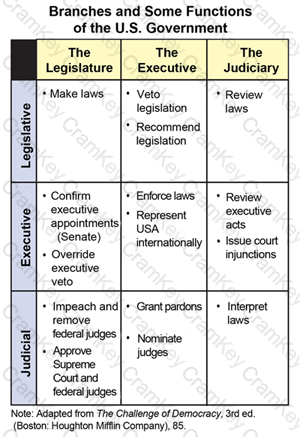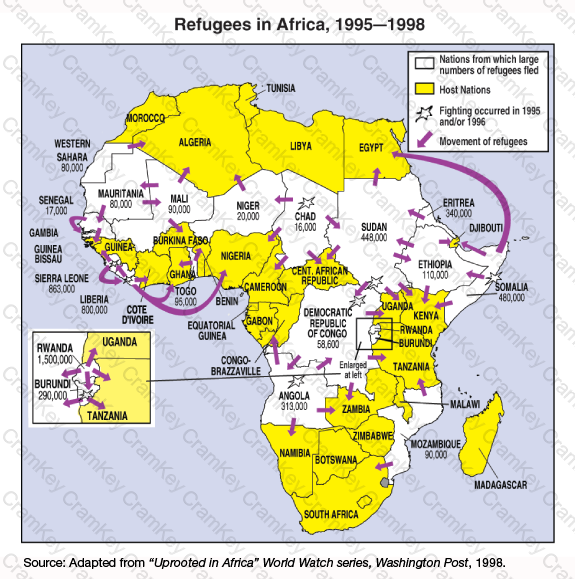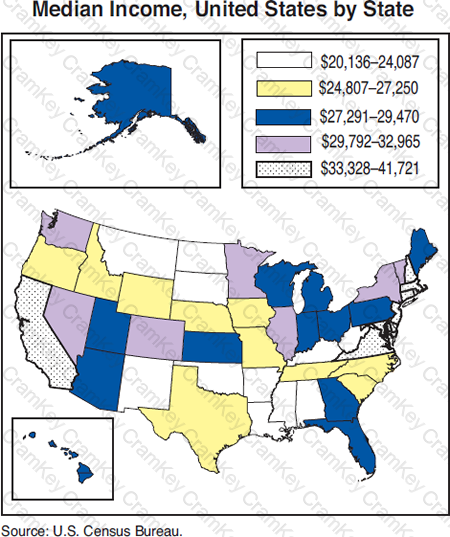| Exam Name: | GED Social Studies Exam | ||
| Exam Code: | GED-Social-Studies Dumps | ||
| Vendor: | GED | Certification: | GED Social Studies |
| Questions: | 300 Q&A's | Shared By: | payton |
Exhibit:

Which question can be answered by using only the information in the chart?
-- Exhibit --
The refugee issue is a worldwide problem.As of 1999, the United Nations High Commissioner for Refugees (UNHCR) reported that there were an estimated 22.3 million refugees around the world. Africa, with 5.2 million refugees in 1995 alone, has been particularly disrupted by the movements of refugees across many borders.
A variety of causes may force people to become refugees, including desertification, drought, famine, disease, warfare, and political persecution.In the 1990s the most frequent causes of refugee migration were civil wars and ethnic clashes.
Refugees seek international protection and/or assistance and are unable to return home because they fear persecution and violence.While some refugees rely on friends and family for assistance or on their own economic resources, most refugees reside in camps where only about 11 cents a day per refugee is available as aid.The "host" countries, often struggling economically themselves, have little to offer refugees.While most refugees maintain the hope of returning to their home countries, some permanently settle in a host country.
-- Exhibit–

Which of the following African countries most likely could not accept many more refugees in the late 1990s?
Exhibit:

Which other type of U.S. map would best help explain the differences shown on the map at the left?
An important function of modern trade unions is to enable employees to work with employers in making and regulating workplace rules, such as establishing the minimum and maximum number of hours on the job.This collaboration between employee and employer has had mixed results.In some workplaces, trade unions have improved employees’ morale, cooperation, and ability to do the job well. In other cases, trade unions have been blamed for decreasing workers’ productivity.
When would employers most likely support trade unions in their workplaces?